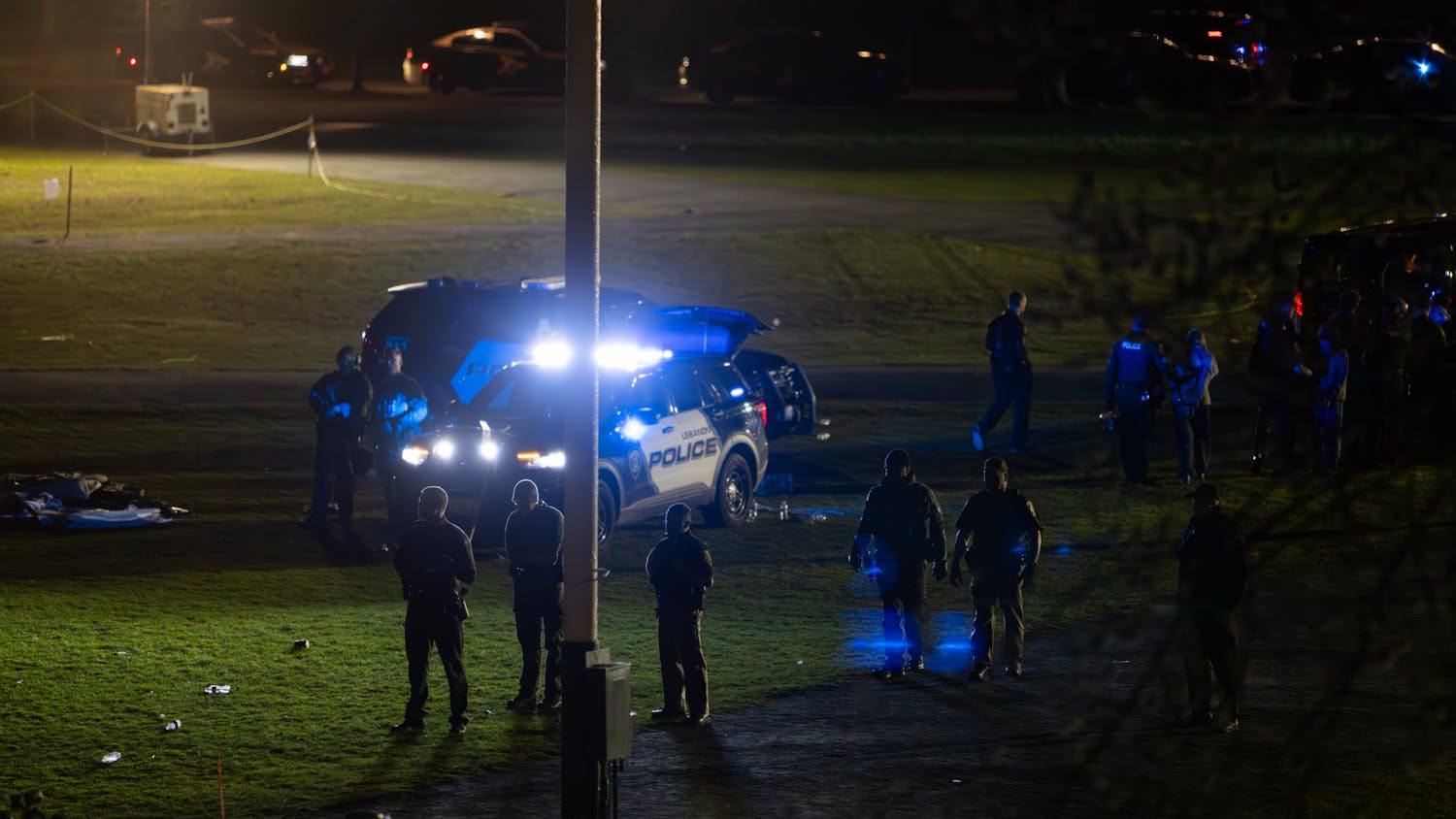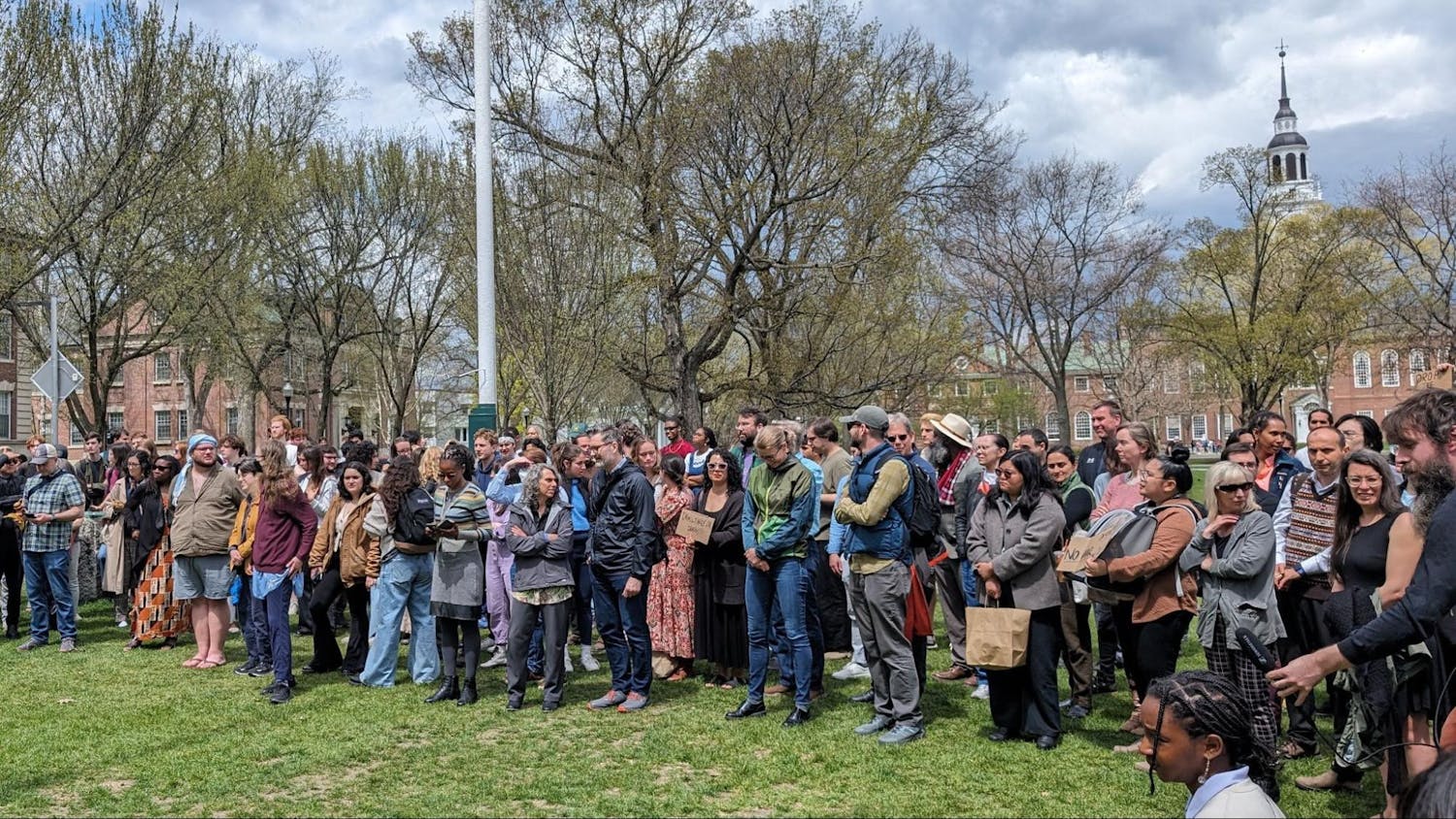The College's admissions office mailed 2,186 high school seniors acceptance notifications yesterday, fewer than in any of the previous four years. The expected size of the Class of 2002 is projected to be 1,065, which is smaller then normal due to the size of the current classes and the physical constraints of the campus.
While the total number of 10,143 applicants was 4 percent smaller than last year's pool, Dean of Admissions and Financial Aid Karl Furstenberg said it was "a much stronger pool. Its not an issue of volume but of quality."
The mean SAT scores of admitted applicants was 720 Verbal and 724 Math, each about five points higher than previous years.
For the second year in a row, more females were admitted than males, but minority acceptances were down 2 percent from last year to 28 percent of the total pool. Eight percent of acceptances went to African-American applicants, and 13 percent went to Asian Americans.
Fewer minority students applied to the College this year, and Furstenberg speculated that many minority applicants incorrectly felt that all colleges were changing their policies after the affirmative action backlash in California and Texas and decided against applying.
Furstenberg said he believes there are two reasons why total applicant numbers declined this year. He believes that as the College has gotten more selective, weaker candidates have decided not to apply.
Also, with the recent publicity about safer cities, more people are looking at urban colleges. Columbia and the University of Pennsylvania saw the biggest increase in applicants this year in the Ivy League.
Furstenberg said there were no geographic patterns to the admission decisions this year and said a slight drop in New England acceptances was insignificant. "We are at a point where we can admit the strongest students in the pool regardless of where they're from." Admissions accepted 157 foreign students for the Class of 2002.
The College accepted 420 students under the early decision plan in December, higher than in previous years. Furstenberg said this increase was due to successful minority and athletic recruitment of early decision candidates, and said the high numbers contributed to the lower than average percentage of acceptances in the regular decision pool.
Other Ivy League schools accept more of their students early, with Harvard and Princeton accepting half of each class early decision. Furstenberg said he expects the College's ratio to settle back to about 30 percent early decision next year, but he said he would like to see that number increase.
"We don't want to limit what we can do later on in the admissions process ... I don't think what Harvard and Princeton does is very smart," Furstenberg said, explaining that for every early acceptance, between two and three fewer regular applicants can be accepted.
Furstenberg said he is keeping a close eye on high-profile decisions by Princeton and Yale to change their financial aid policies to lure more students.
"I wouldn't say I'm concerned. I don't think there will be much of an affect this year but I'm definitely keeping a close eye on it," he said.
The College now must wait for accepted students to decide whether to attend the College. Accepted students have until May 1 to notify the College of their plans next year. Furstenberg expects approximately 50 percent of accepted candidates to matriculate next fall.



